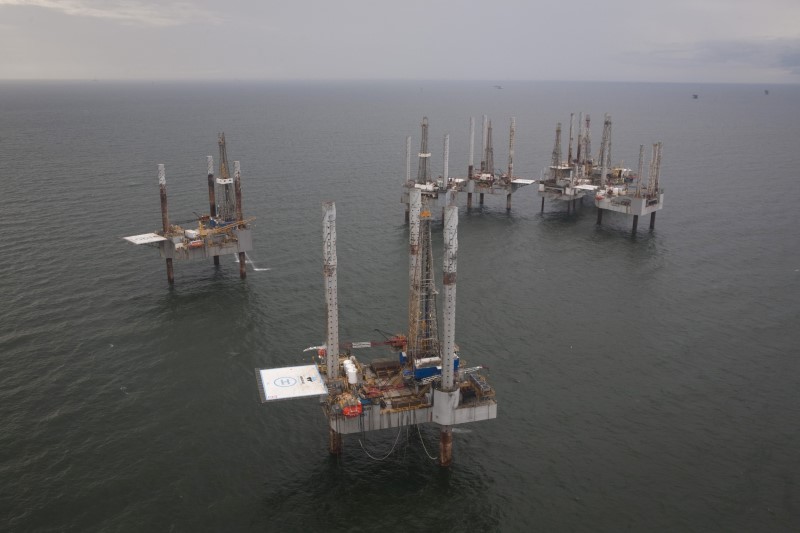By Valerie Volcovici
WASHINGTON (Reuters) - U.S. President Donald Trump on Friday will order a review of offshore areas currently off limits to oil and gas drilling to determine which might be reopened, in his administration's latest move to expand domestic energy production.
The order could lead to a reversal of bans on drilling across swathes of the Atlantic, Pacific and Arctic oceans and the Gulf of Mexico that former President Barack Obama's administration sought to protect from development.
"It is better to produce energy here than be held hostage by foreign entities," Interior Secretary Ryan Zinke told reporters on Thursday in a briefing about the executive order, which will be called the America-First Offshore Energy Strategy.
Trump had campaigned on a promise to do away with Obama-era environmental protections that he said were hobbling energy development and undermining U.S. national security without providing any tangible benefits, cheering industry but enraging environmental advocates.
Zinke said the order will require him to review and replace the Obama administration's most recent five-year oil and gas development plan for the outercontinental shelf, which comprises federal waters off all U.S. coasts.
The order will also reverse Obama's move to place parts of the Arctic permanently off-limits to drilling, and encourage more seismic surveying to determine which areas are likely to hold rich reserves of oil and gas.
In addition, the order will direct Commerce Secretary Wilbur Ross to review previous presidents' designations of marine sanctuaries and national monuments under the 1906 Antiquities Act over the last 10 years.
Weeks before leaving office, Obama banned new oil and gas drilling in federal waters in the Atlantic and Arctic oceans, protecting 115 million acres (46.5 million hectares) of federal waters off Alaska and 3.8 million acres in the Atlantic from New England to the Chesapeake Bay.
On Wednesday Trump signed a separate order to examine areas of U.S. federally managed land to determine if they were improperly designated as national monuments by former presidents, rendering them off limits to development.
Environmental groups, including Oceana and the Center for Biological Diversity, slammed the new executive order and promised to fight it in court. They pointed out the order comes seven years after a large oil spill from a BP (L:BP) platform in the Gulf of Mexico, an event that had led green groups to urge a slowdown in offshore oil development.

On Thursday, 27 Democratic senators sent a letter to Zinke opposing the order. "Allowing drilling anywhere on the east or west coasts would threaten key economic drivers for these states such as fishing and tourism with the risk of an oil spill," they wrote.